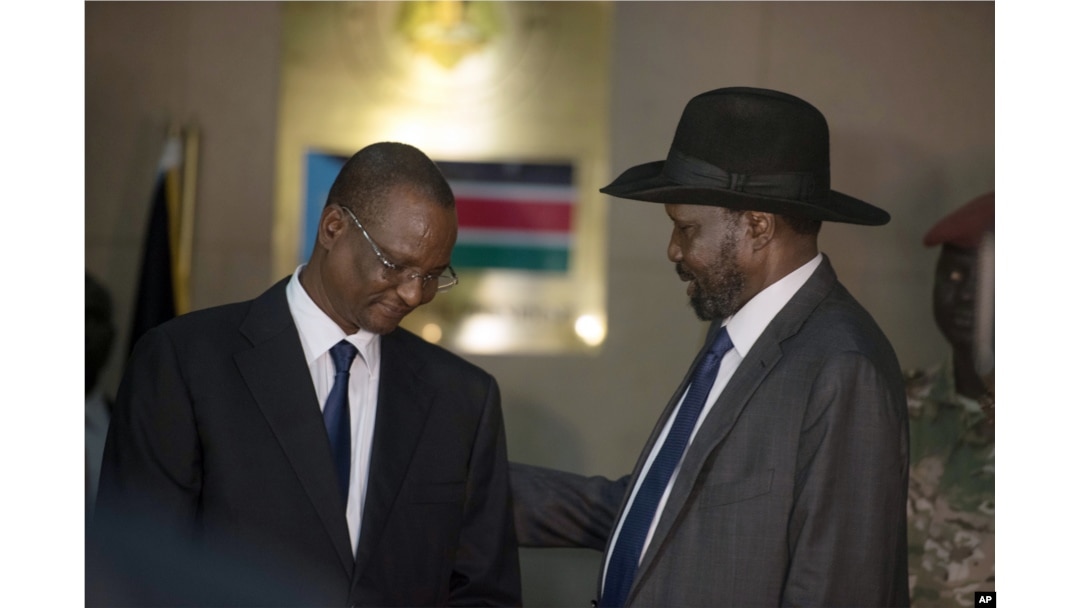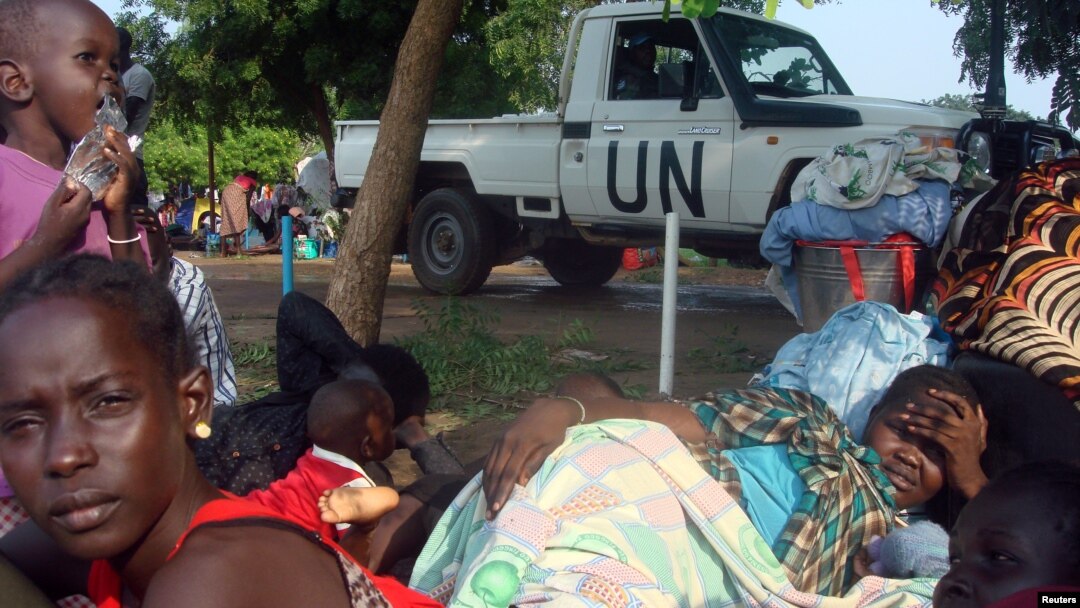The United Nations says there will be “serious repercussions” if U.N. peacekeepers in South Sudan failed to protect women being raped outside a U.N. protection-of-civilians site, as reported Wednesday.
Spokesman Farhan Haq, told reporters in New York, the United Nations is taking allegations that peacekeepers did not help civilians in need “very seriously,” and added that the commander of the U.N. mission in South Sudan is looking into the matter.
The Associated Press, citing witnesses and civilian leaders, reported South Sudanese government soldiers raped dozens of ethnic Nuer women and girls last week just outside a U.N. camp where they had sought shelter from recent fighting in the capital.
The report said that on July 17, two armed soldiers in uniform dragged away a woman who was just a few hundred meters from the U.N. camp's western gate, while armed peacekeepers on foot, in an armored vehicle and in a watchtower looked on.
One witness estimated that 30 peacekeepers from Nepalese and Chinese battalions saw the incident.
"They were seeing it . Everyone was seeing it," he said. "The woman was seriously screaming, quarreling and crying also, but there was no help. She was crying for help." He and other witnesses interviewed insisted on speaking on condition of anonymity because they feared reprisals by soldiers if identified.
The reported assaults occurred about a week after government and opposition forces clashed in Juba, forcing opposition leader Riek Machar from the city and killing hundreds of people.
President Salva Kiir has since ousted Machar as first vice president in South Sudan’s transitional government and replaced him with the opposition’s chief peace negotiator, Taban Deng Gai. Machar told al Jazeera television Wednesday his ouster is a violation of last year’s peace agreement.

South Sudan's First Vice President Taban Deng Gai, left, speaks with President Salva Kiir, right, after Taban was sworn in, replacing opposition leader Riek Machar, at the presidential palace in Juba, South Sudan, Tuesday, July 26, 2016.
Machar, who has not been seen in public for more than two weeks, said he is “around Juba.” He said he would return to the capital when international troops are deployed to the capital.
The African Union has proposed sending an armed force to maintain peace in South Sudan, but Kiir has rejected the idea. A cease-fire declared July 13 has halted fighting in the capital, but clashes have taken place in other parts of the country.
FILE - Black smoke rises above Juba, South Sudan, July 10, 2016. Explosions and heavy weapons gunfire shook the city as clashes between government and opposition forces continued.
Soldiers raped women buying food
As the cease-fire took hold in Juba, women and girls began venturing outside the U.N. camp for food.
The camp houses over 30,000 civilians who are nearly all ethnic Nuer, the same ethnicity as Machar. They fear attacks by government forces who are mostly ethnic Dinka, the same as Machar's rival, President Salva Kiir.
As the women and girls walked out of the U.N. camp, they entered an area called Checkpoint, in the shadow of a mountain on Juba's western outskirts. That stretch of road along one side of the camp saw some of the heaviest fighting and is lined with wrecked shops and burned tanks. It is now inhabited by armed men in and out of uniform.
In interviews, women described soldiers in Checkpoint allowing them to leave to buy food, but attacking them as they returned.
"When we reached Checkpoint, the soldiers come out and called the women and said, 'Stop, please, and sit down,' so we stopped and sat down, and they took one woman inside a shop," a woman said. "Four men went inside the shop and they raped the woman while we three stayed outside."
In another incident, one woman said a group of soldiers pulled two women and two underage girls from their group and gang-raped them in a shop, with more than 10 men to each victim. One girl later died, she said.
"I saw the men taking their trousers off and the ladies crying inside," said a middle-aged woman. As she spoke, she began to cry. "They said, 'This one belongs to me, this one belongs to me,'" she added.
Multiple Nuer women said soldiers threatened them because of their ethnicity or accused them of being allied with Machar. The women identified the soldiers as ethnic Dinka because of the language they spoke.
"One soldier came and he turned the gun to us. He said, 'If I kill you now, you Nuer woman, do you think there is anything that can happen to me?" one woman said. She said the soldier slapped her before another soldier intervened, allowing her to escape.
The number of rapes that took place outside the U.N. camp was unclear. The AP interviewed more than a dozen witnesses of rapes or people who spoke with victims, both one-on-one and in small groups.
The Protection Cluster, a group of aid workers that monitors violence against civilians in South Sudan, said at least two victims are known to have died as a result of their injuries. Civilian leaders in the U.N. camp have given estimates ranging from 27 to over 70 rapes from the time that women started venturing out for food. The United Nations says it received reports of dozens of cases. A South Sudanese rights group, the Community Empowerment for Progress Organization, said it is investigating 36 reported rapes.
The number of victims reporting to clinics is believed to be lower than the actual total because of the stigma in Nuer culture attached to rape.
The rape of civilians has been a near-constant in South Sudan's civil war that began in 2013, with both sides accused of using sexual assault, based on ethnicity, as a weapon of war.
VOA U.N. correspondent Margaret Besheer contributed to this report.


